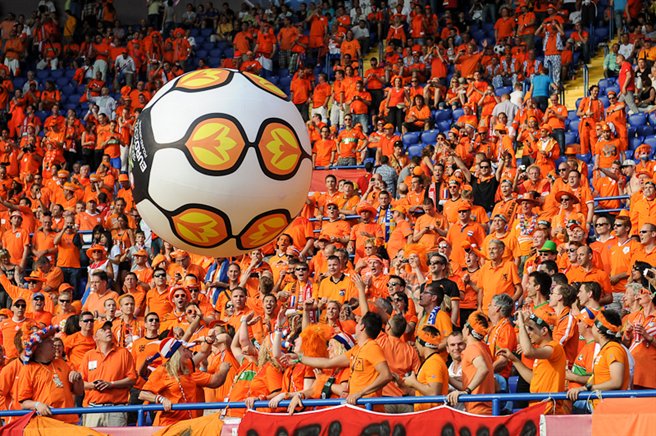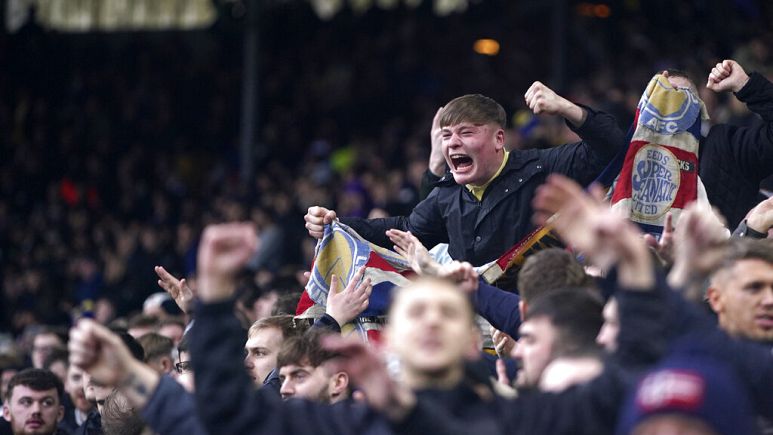“Football Fan Culture in the Netherlands: A Deep Dive into Passion, Tradition, and Social Identity
Related Articles Football Fan Culture in the Netherlands: A Deep Dive into Passion, Tradition, and Social Identity
Football Fan Culture in the Netherlands: A Deep Dive into Passion, Tradition, and Social Identity

The Netherlands, a nation renowned for its vibrant tulips, historic windmills, and progressive social values, also boasts a deeply entrenched and passionate football culture. Football, or voetbal as it’s known locally, is more than just a game; it’s a social phenomenon that permeates Dutch society, shaping identities, fostering community, and generating a unique and often intense fan culture. From the iconic stadiums echoing with chants to the fervent rivalries that divide cities, Dutch football fan culture is a complex tapestry woven with threads of tradition, loyalty, and unwavering support.
Historical Roots and Evolution:
The roots of Dutch football fan culture can be traced back to the late 19th century, coinciding with the rise of organized football in the country. Early football clubs, often associated with specific neighborhoods or social groups, quickly attracted a loyal following. These early supporters were primarily drawn from the working class, finding in football a sense of belonging and collective identity. As football grew in popularity, so did the fan base, evolving from small gatherings to larger, more organized groups.
The post-World War II era witnessed a significant shift in Dutch society, with increased affluence and leisure time contributing to the further development of football fan culture. The rise of iconic clubs like Ajax Amsterdam, Feyenoord Rotterdam, and PSV Eindhoven, each with their distinct histories and regional identities, fueled intense rivalries and passionate support. The 1970s, a golden era for Dutch football, saw the national team, Oranje, captivate the nation with their "Total Football" style, further solidifying the sport’s place in the national psyche.
Key Characteristics of Dutch Football Fan Culture:
Several key characteristics define Dutch football fan culture, setting it apart from other European nations:
- Club Loyalty: Dutch football fans are fiercely loyal to their clubs, often supporting them from a young age and passing down this allegiance through generations. This loyalty extends beyond on-field success, with fans remaining steadfast even during periods of hardship.
- Atmosphere and Chanting: Creating a vibrant atmosphere in the stadium is a crucial aspect of Dutch football fan culture. Fans are known for their creative chants, songs, and coordinated displays, transforming stadiums into cauldrons of noise and color. The sfeermakers (atmosphere makers) are highly valued, often organizing elaborate tifo displays and leading the chants from the vak (section) dedicated to the most ardent supporters.
- Away Support: Traveling to away games is a common practice among Dutch football fans, demonstrating their unwavering commitment to their clubs. Away sections are often filled with passionate supporters, creating a lively and sometimes confrontational atmosphere.
- Rivalries: Intense rivalries are a defining feature of Dutch football fan culture. The most famous rivalry is De Klassieker between Ajax Amsterdam and Feyenoord Rotterdam, a clash that transcends football and represents deep-seated social and cultural divisions. Other notable rivalries include those between Ajax and PSV, Feyenoord and PSV, and regional derbies like the Gelderse Derby between Vitesse Arnhem and NEC Nijmegen.
- Social Aspect: Football is deeply ingrained in the social fabric of Dutch society. Fans often gather in pubs and bars before and after games, discussing tactics, celebrating victories, and commiserating over defeats. Football provides a common ground for people from all walks of life, fostering a sense of community and belonging.
- Criticism and Engagement: Dutch football fans are known for their critical engagement with their clubs. They are not afraid to voice their opinions on team performance, management decisions, and club policies. This critical engagement reflects a deep investment in the club’s success and a desire to see it thrive.
The Role of Ultras and Fan Groups:

Ultras groups play a significant role in shaping Dutch football fan culture. These organized groups of supporters are known for their passionate support, elaborate tifo displays, and unwavering loyalty. Ultras groups often have a strong social and political consciousness, using their platform to express their views on issues ranging from club governance to social justice.
While ultras groups contribute significantly to the atmosphere in stadiums, they have also been associated with incidents of hooliganism and violence. Dutch authorities have implemented various measures to address these issues, including stricter stadium security, banning orders, and increased police presence. However, the debate over the role of ultras groups in Dutch football continues, with some arguing that they are an essential part of the fan culture, while others see them as a source of trouble.
Challenges and Controversies:
Dutch football fan culture is not without its challenges and controversies. Hooliganism, while less prevalent than in some other European countries, remains a concern. Incidents of violence and disorder occasionally occur, particularly around high-profile matches.
Another challenge is the commercialization of football, which has led to rising ticket prices and a perceived disconnect between clubs and their supporters. Many fans feel that the focus on profits has eroded the traditional values of the game and alienated loyal supporters.
The use of pyrotechnics in stadiums is another contentious issue. While some fans view flares and smoke bombs as an integral part of the atmosphere, authorities consider them dangerous and have implemented strict regulations to prevent their use.
The Future of Dutch Football Fan Culture:
The future of Dutch football fan culture is likely to be shaped by several factors, including technological advancements, changing social attitudes, and the ongoing debate over commercialization.
The rise of social media has provided fans with new ways to connect with each other, share their opinions, and organize events. Online forums and social media groups have become important platforms for fans to discuss football-related issues and express their support for their clubs.
Efforts to combat hooliganism and promote responsible fan behavior are likely to continue. Clubs and authorities are working together to implement measures that ensure the safety and security of fans while preserving the vibrant atmosphere in stadiums.
The debate over commercialization is likely to intensify, with fans demanding greater transparency and accountability from clubs. There is a growing movement to reclaim the game for the supporters, advocating for affordable ticket prices, fan representation on club boards, and a greater emphasis on community engagement.
Conclusion:
Dutch football fan culture is a complex and multifaceted phenomenon that reflects the nation’s history, values, and social dynamics. It is a culture characterized by passionate loyalty, vibrant atmosphere, intense rivalries, and a deep-seated social connection. While challenges and controversies remain, Dutch football fan culture continues to evolve and adapt, ensuring that the game remains a central part of the national identity. The unwavering support of the fans, the echoes of chants in the stadiums, and the shared passion for the beautiful game will continue to define Dutch football for generations to come. The dedication and energy they bring to the sport is a testament to the enduring power of football to unite, inspire, and shape communities.

